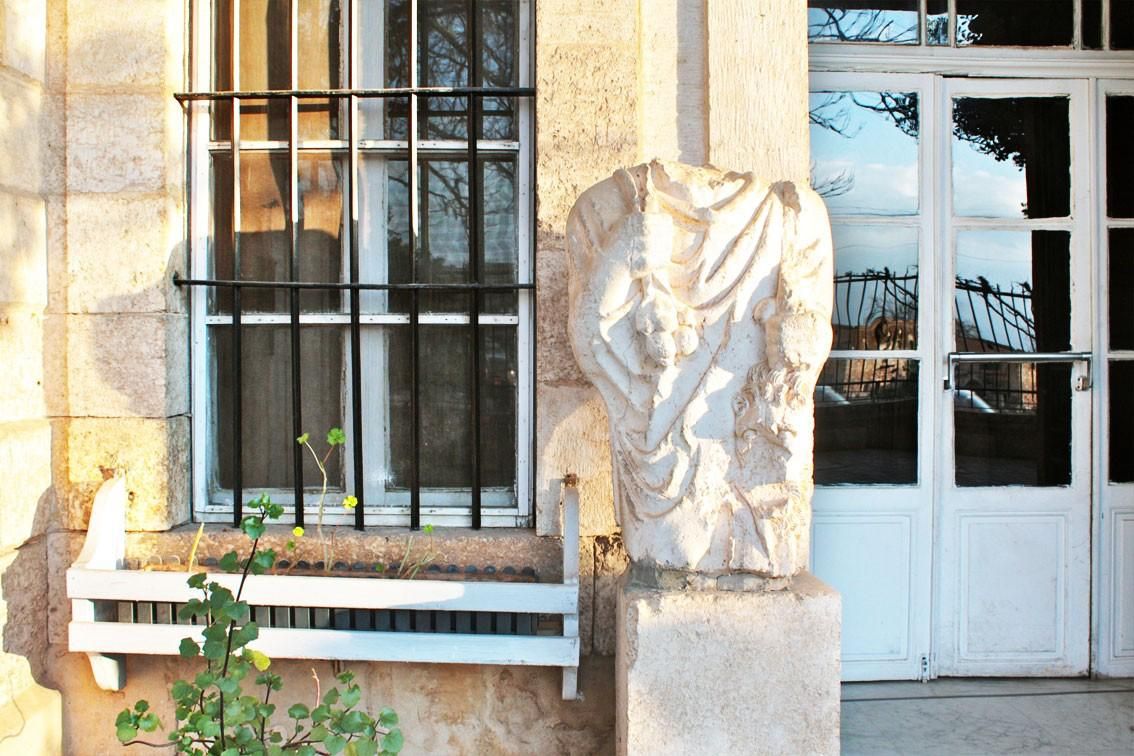
Baalbeck, a gem of Lebanese tourism, is emptying out. The Palmyra Hotel, a city landmark, remains open despite the lack of clients. Israeli strikes have emptied the city of its residents and threaten its ancient heritage. The remaining population organizes itself, hoping for a return to normalcy.
For over a month, the iconic Palmyra Hotel has not hosted a single tourist coming to explore Baalbeck’s Roman ruins, near which Israeli bombs are falling. Yet Rabih Salika refuses to leave the establishment where he has worked for 24 years.
The war between Israel and the pro-Iranian Hezbollah movement, deeply rooted in Baalbeck (east), has not disrupted Mr. Salika’s daily routine. From room to room, under the high ceilings of the elegant 19th-century stone building, he dusts the old furniture and sweeps away broken glass from the courtyard, blown in by the bombings.
"In 150 years, this hotel has never closed its doors," boasts the man in his forties. And despite the current situation, "the owners want to keep it open." But the establishment, which has hosted Charles de Gaulle and Lawrence of Arabia, "is completely empty, not a single guest. We don’t even serve a single cup of coffee."
The entire city is affected by the war. More than half of its 250,000 residents have left, according to the municipality. Those who remain are barricaded in their homes, hurrying in the morning to shop as stores close early.
This metropolis, in the Bekaa Valley, a Hezbollah stronghold near the Syrian border, relies heavily on tourism, notably due to its site inherited from ancient Heliopolis and classified as a UNESCO World Heritage site: it houses "some of the largest and best-preserved Roman temples ever built."
"Everything Has Changed"
For the past year, despite sporadic exchanges of fire in the south between Hezbollah and Israel, Baalbeck had been relatively spared. But the strikes have intensified in recent weeks.
“Today, everything has changed,” laments Racha al-Rifaï, 45. “You don’t see anyone anymore; most of the people I know have left. ” She has stayed to prevent her elderly parents from "reliving the same difficult experience" as in July 2006, during the last war between Hezbollah and Israel. "We were moved from house to house," she recalls.
Baalbeck’s mayor, Moustafa al-Chall, confirms that the strikes have targeted “commercial and residential areas” and notes that the central market barely opens for an hour each day. Residents who remain avoid lingering in the streets “for fear of a raid that could come at any moment,” he explains.
Of the city’s six hospitals, one is out of service, damaged by an Israeli strike nearby. With the limited resources available to the municipality in a country undergoing economic collapse, Mr. Chall’s services are doing what they can.
“We are providing aid” to displaced families at a shelter and “clearing the roads after bombings to reopen them,” the official shares.
Like everywhere else in Lebanon, Baalbeck awaits the end of hostilities to hope for a semblance of normality. In 2024, visitor numbers collapsed — representing only 5% of the figures recorded the previous year.
The city had welcomed nearly 70,000 tourists and 100,000 Lebanese visitors, in addition to the million Shia pilgrims who come each year to the Sayyida Khawla mausoleum, daughter of Imam Hussein, a founding figure of Shia Islam.
"No One Left"
At the beginning of October, a strike near the Roman ruins stirred concern in Lebanon. The region’s governor, Bachir Khodr, warned of the “negative consequences” of these bombings for the site, whether it be “the black smoke affecting the stone or the blast wave” weakening the structure.
With its colossal constructions erected over more than two centuries, "Baalbeck remains one of the most imposing relics of imperial Roman architecture at its height," UNESCO reminds us on its website.
The organization highlights the Temple of Jupiter and “its 20-meter-high columns” and a second temple dedicated to Bacchus, notable for “its rich and abundant decoration.” Questioned by AFP, the agency stated it is “closely monitoring the current crisis’ impact” on Lebanese heritage.
For Hussein al-Jammal, life in Baalbeck has radically changed. “The streets were full of life, restaurants open, markets crowded,” he recalls. “Now, no one is left.”
For safety, this 37-year-old man sent his wife and their two children away. He has stayed because he doesn’t want to abandon his commitment to a local NGO. In his neighborhood, there are still elderly residents. “Every morning, I visit them to see what they need,” he assures. “I can’t leave.”
With AFP



Comments